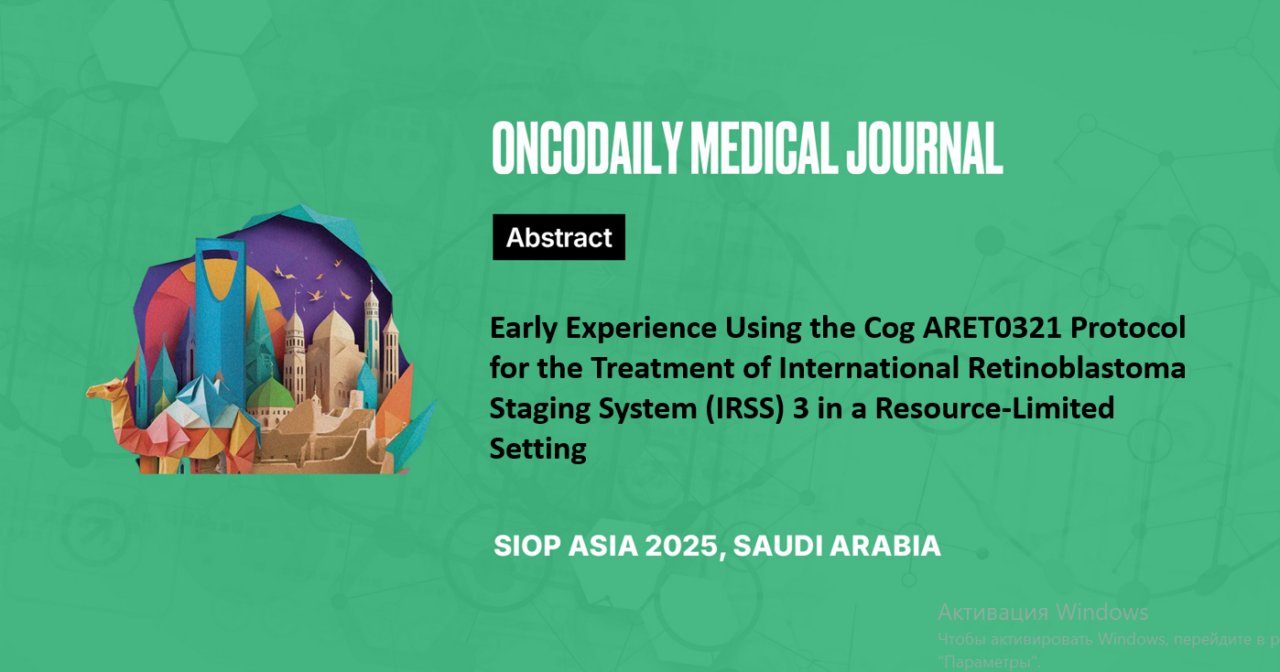Early Experience Using the Cog ARET0321 Protocol for the Treatment of International Retinoblastoma Staging System (IRSS) 3 in a Resource-Limited Setting
Abstract
Introduction: The treatment of extra-ocular retinoblastoma in low- and middle-income countries remains challenging as available resources and supportive care for delivering intensive and multimodality protocols are limited. Among the 66 IRSS 3 patients diagnosed at the Philippine General Hospital from 2014 to 2021, the 2-year overall survival rates are only 28% due to disease progression.
In 2022, we shifted protocol from SIOP PODC Regimen 2 to COG ARET0321, along with additional strategies to combat treatment-related toxicities and abandonment. These include longer courses of myeloid growth factor, prophylactic antibiotics, outpatient blood transfusions, patient navigation, and housing. We report our early experience.
Methodology: A retrospective chart review of newly diagnosed patients with IRSS Stage 3 was conducted from January 2022 to December 2024.
Results: There were 10 patients, six unilateral and four bilateral, who received the COG ARET0321 protocol, with an M:F ratio of 4.1 and a median age of 36 months. Nine had IRSS Stage IIIA and one IRSS Stage IIIB. All received full doses of chemotherapy and were sent home on Filgrastim and Cefixime prophylaxis. Treatment interruptions occurred due to febrile neutropenia and infections, with a median cycle interval of 35.5 days.
For outcomes, three patients abandoned treatment during chemotherapy; one died from infection, and one shifted protocol due to Etoposide anaphylaxis. Five patients completed treatment, including radiation, and are alive with a median follow-up of 21.3 months (range 9.2 – 31.5).
Conclusion: The adoption of the COG ARET0321 protocol demonstrated significant toxicities, treatment delays and abandonment. However, this preliminary review suggests improved disease control in extra-ocular Retinoblastoma patients. Further studies are needed to identify the optimal strategies for implementing the protocol and to assess its impact on survival outcomes in LMIC settings.





